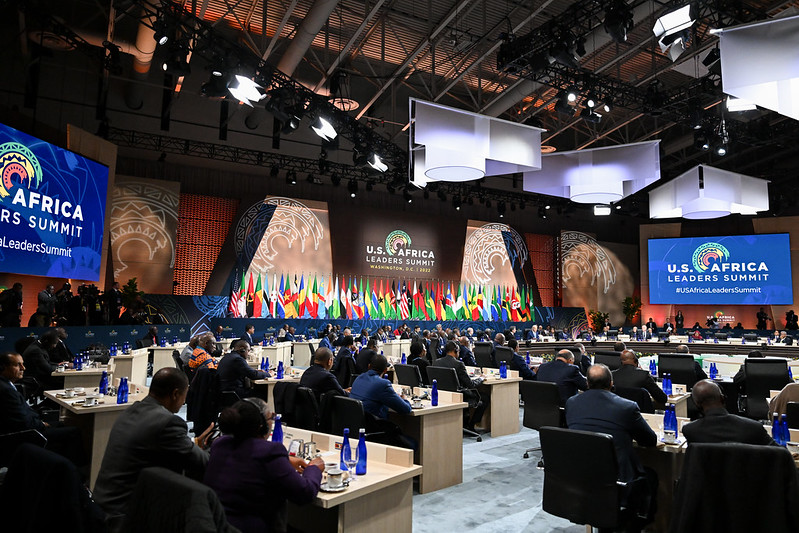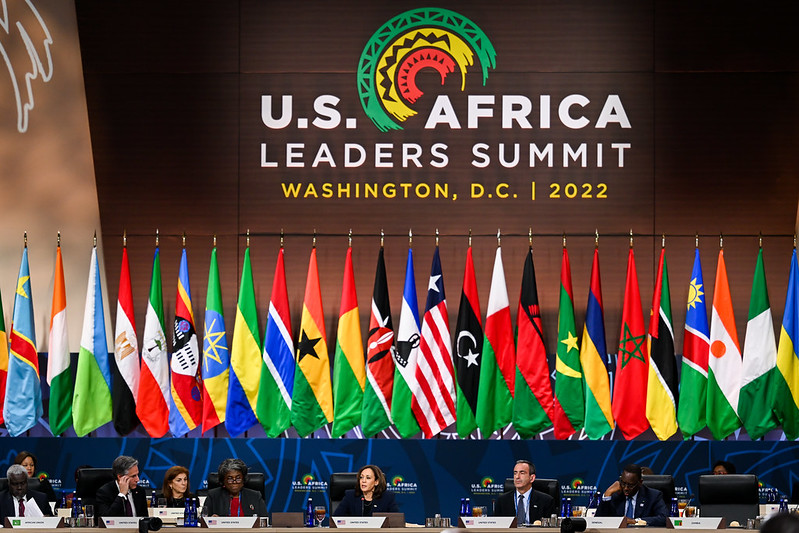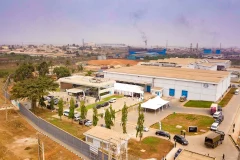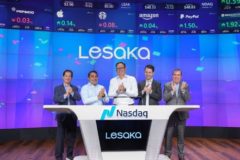Everything you should know about the US-Africa Leaders Summit.
8 years after former US President Obama had African leaders come over to the US capital, President Biden, then Vice President of the US, has replicated the gesture of his former principal. This week more than 40 African heads of state were in Washington D.C for the second US-Africa Leaders Summit.
Leader-to-leader meetings were expected but not announced in the lead-up to the summit. Ultimately, Biden failed to hold any talks directly with African heads of state. That role fell to Secretary of State, Anthony Blinken, who held talks with African heads of state at the summit. While Deputy Secretary Wendy Sherman, met with several African ministers and representatives.
President Biden’s olive branch to Africa included US support for the Africa Continental Free Trade Agreement and a permanent seat for the African Union on the G20 forum. On the second day of the summit, AfCFTA Secretary General Wamkele Mene and Ambassador Katherine Tai, the US Trade Representative signed a memorandum of understanding on trade cooperation between the AfCFTA secretariat and the US.
At a dinner with foreign ministers, US Secretary of State, Anthony Blinken said, “To try to accelerate that progress, the administration is taking a number of steps, including advocating for American business, driving U.S. private sector investment to growth industries in Africa, correcting misperceptions about risk, and working with African partners to strengthen the business climate in their countries.”
The Biden administration headlined the summit with $55 billion in commitments. According to president Biden, the summit spawned $15 billion in new commitments, meaning the bulk of the $55 billion headline figure comes from initiatives that have already been announced in previous fora. While there were a few interesting investment announcements and commitments, the overall feeling while, watching the US Africa Business Forum was watching an assemblage of disparate deals scraped from any presentable enough commitment to make an impression that, in Biden’s words, “The United States is all in on Africa’s future.”
The uninvited presence throughout the summit was, of course, China. At a sideline event organised by Semafor, China’s ambassador to Washington, Qin Gang declared, “China-Africa relations are the bedrock of China’s foreign policy.”
The day before the start of proceedings, US National Security Advisor, Jake Sullivan said in response to a question on Chinese influence in Africa, “This is going to be about what we can offer. It’s going to be a positive proposition about the United States’ partnership with Africa. It’s not going to be about other countries. It’s not going to be attempting to compare and contrast.”
Key highlights from the business forum include:
- The Digital Transformation with Africa (DTA) initiative. A plan to “expand digital access and literacy and strengthen digital enabling environments across the continent.” A press statement on the program explains that, “Working with Congress, this initiative intends to invest over $350 million and facilitate over $450 million in financing for Africa in line with the African Union’s Digital Transformation Strategy and the U.S. Strategy Toward Sub-Saharan Africa.”
This follows the August publication of a “US Strategy towards Sub-Saharan Africa” that focuses primarily on open governments, pandemic and economic recovery and climate policy.
In other announcements, the US Department of Commerce wants to leverage regional digital attachés, located in South Africa and Egypt, to increase its focus on the digital sector through the DTA initiative and will co-chair Pillar 1: Digital Economy and Infrastructure with the United States Trade and Development Agency (USTDA).
- Through the Prosper Africa initiative, the U.S. Government expects (through a $170 million facility) to mobilise $1 billion in private-sector investment into Africa. The commitment is dependent on “funding availability,” a curious choice of words. But Prosper Africa hopes the funding and a slew of partnerships with 5 African-focused fund managers (Fund for Africa’s Future, Altree Capital, Endeavor South Africa, Okavango Capital, and ThirdWay Partners) will boost African exports to the United States by $1 billion.
Through the Prosper Africa Tech for Trade Alliance, Prosper Africa will serve as a “one-stop-shop for businesses and investors, as well as coordinate interagency support, for deals in the ICT sector.” African startups and local VC firms will be paying attention to this.
- A slew of investments in agriculture, food systems and health including $100 million “to accelerate last-mile delivery of agricultural innovations” and unlock $300 million in private financing from the US Agency for International Development (USAID). And $469 in new investments from the International Development Finance Corporation (DFC) to support food security, health and buoy energy projects.
- In a more explicit move, the Export-Import Bank of the United States (EXIM) will seek to bolster the competitiveness of U.S. exporters through the China and Transformational Exports Program. While the specifics of this program are not clear, the intention—to expand US-Africa trade—is. The evidence is in several new MoUs signed. With the largest being three with the African Export-Import Bank (Afreximbank), Africa 50, and Africa Finance Corporation totaling $1.3 billion.

On the US’ Digital Transformation with Africa initiative, the US highlighted a growing push into Africa’s digital infrastructure space. “Let me give you one example,” Secretary Blinken said at a reception for African innovators, “Africa has around twice as many internet users as the United States, yet the continent has only a fraction of our data center space. What does that mean? Slower, less reliable connectivity. That’s why our U.S. Development Finance Corporation is investing $300 million in building data centers across the continent – because we need networks that can keep up with the lightning pace of new ideas.”
What was largely missing in this conversation about digital infrastructure was investment or discussion about telecoms infrastructure—the space where China’s Huawei dominates with over 70% market share in the devices used to enable mobile and internet connectivity across Africa. A prior U.S. International Development Finance Corporation’s (DFC) $100 million facility to help Africell upgrade and expand mobile networks in the Democratic Republic of the Congo, The Gambia, and Sierra Leone, was however listed in a later press statement on the US’ digital initiative.
As a conciliatory move—coming after the US’ lecturing of African countries over the continent’s neutrality in the face of US and EU censure of Russia—this 2nd US Africa Summit may be a success. The jury will be out on this pending fulfillment of commitments announced. As an attempt to soften China’s position on the continent, suffice it to say that China does not need to look over its shoulder.





















